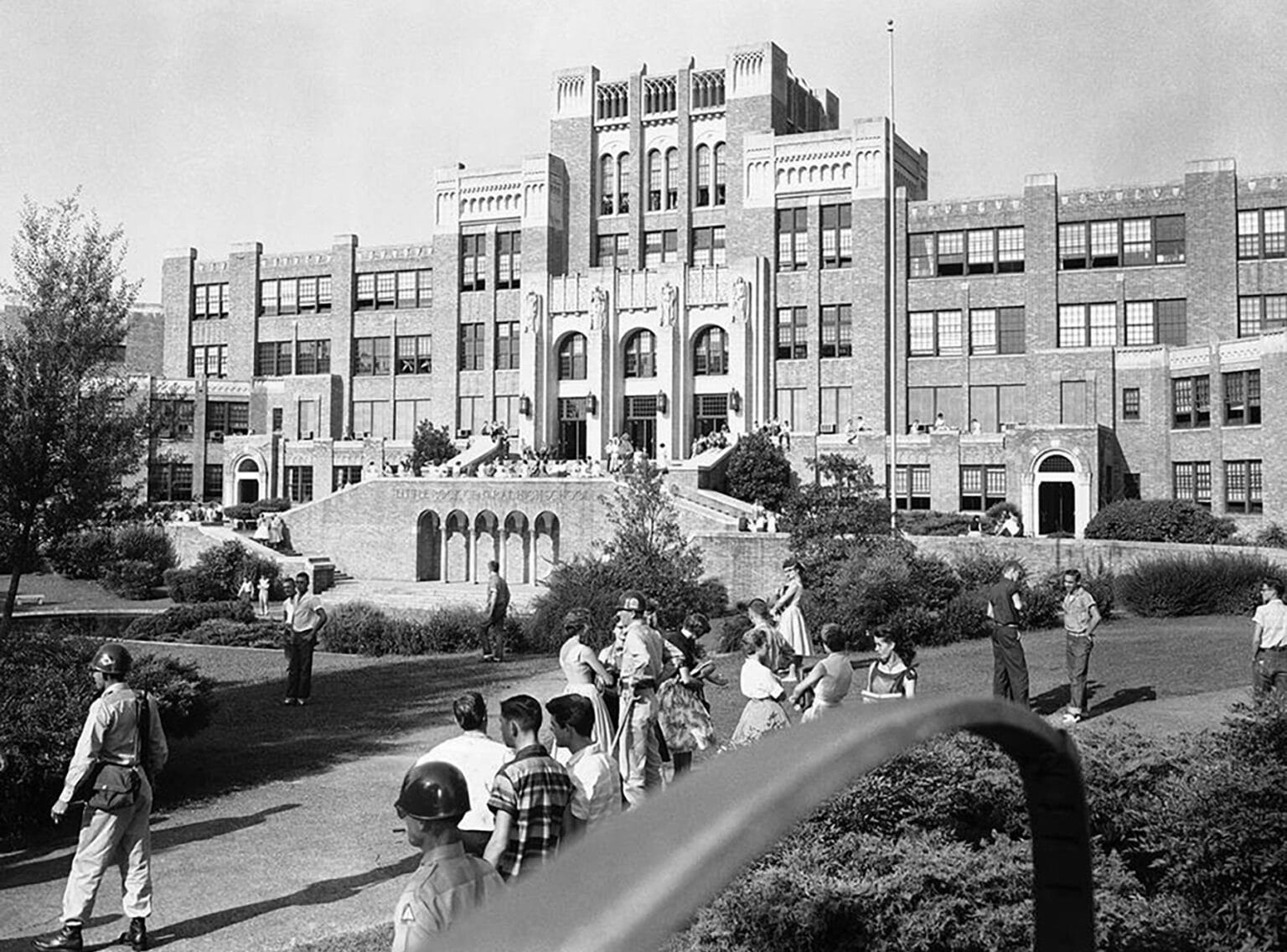RESOURCES
PLACES
Little Rock, Central High School
In 1957, Little Rock, Arkansas became the epicenter of the national struggle over school desegregation when nine African American students—later known as the Little Rock Nine—enrolled at Central High School. This was three years after the U.S. Supreme Court’s Brown v. Board of Education decision declared segregated public schools unconstitutional. Although the Little Rock School Board initially agreed to comply with the ruling through a gradual integration plan, the reality of implementing that plan met fierce resistance from segregationist forces in the city and state.
On September 4, 1957, as the nine students attempted to enter the school, they were turned away by the Arkansas National Guard, deployed by Governor Orval Faubus under the claim that their presence would incite violence. The students, accompanied by community leaders and the press, faced an angry white mob outside the school. Faubus’s defiance brought the crisis to national attention, directly challenging federal authority and the Supreme Court’s decision.
In response, President Dwight D. Eisenhower intervened by federalizing the Arkansas National Guard and deploying 1,200 troops from the 101st Airborne Division to escort and protect the students. On September 25, under military guard, the Little Rock Nine finally entered Central High School. Despite this federal enforcement, the students endured a year of relentless harassment, threats, and isolation inside the school. Their courage symbolized the personal cost of desegregation and highlighted the depth of resistance in the South.
The Little Rock crisis was a pivotal moment in the civil rights movement, demonstrating that legal rulings alone were insufficient to bring about social change without federal enforcement. It underscored the lengths to which segregationists would go to preserve Jim Crow and solidified the federal government’s role in enforcing civil rights. The events in Little Rock also galvanized civil rights advocates and laid the groundwork for more direct action in the years to come.
